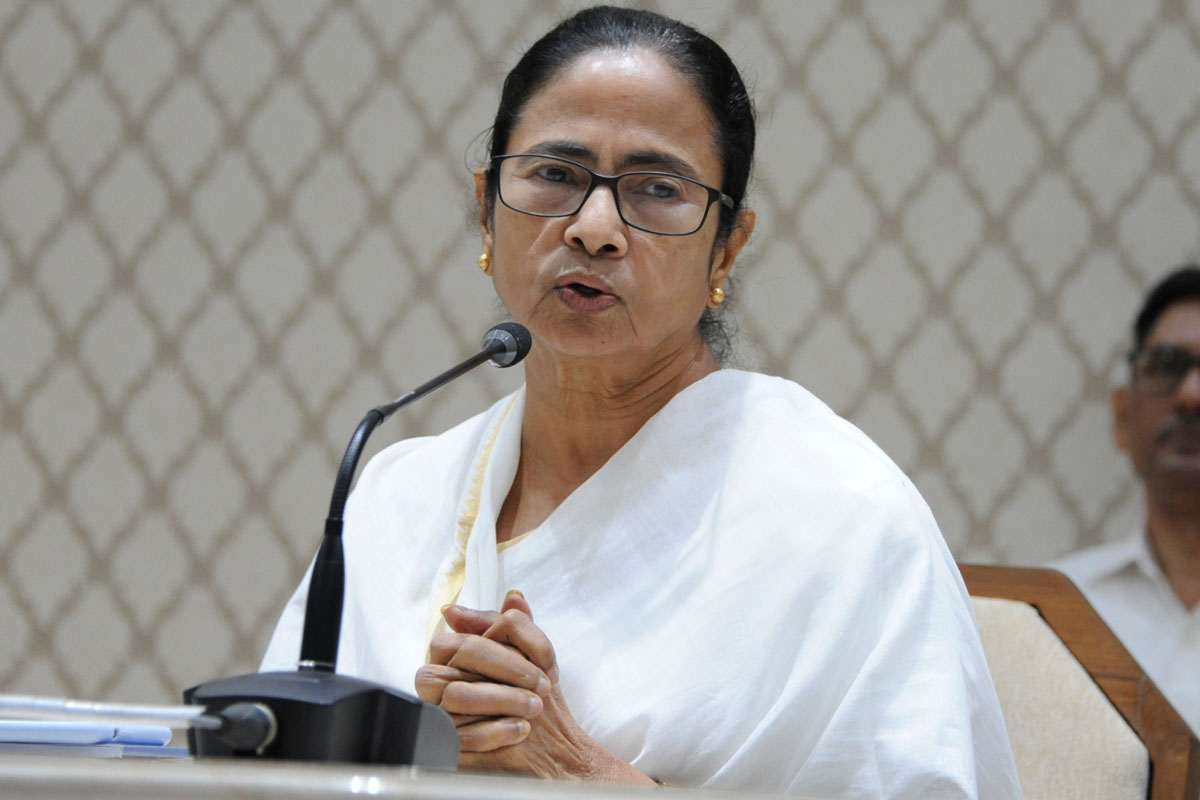Cold storage association demands storage rent rise from govt
West Bengal Cold Storage Association held their 60th annual general meeting on Wednesday.
Ostensibly, it was an act of a devotee worshipping the deity. In fact, Banerjee has often said, “Religion is an individual choice.”

WB CM Mamata Banerjee (photo:IANS )
Yesterday, on the day of Rath Yatra, the “chariot journey” of the mythological Hindu god, Lord Jagannath, West Bengal chief minister Mamata Banerjee offered prayers at the feet of the deity. Inaugurating the religious festival at the ISKCON temple in Kolkata, she also performed “puja” a ritual of showering rose petals and holy basil leaves on the idol and his two compatriots, Subhadra and Balaram. Ostensibly, it was an act of a devotee worshipping the deity. In fact, Banerjee has often said, “Religion is an individual choice.”
However, make no mistake that this is also an astute politician’s poll strategy at a time when she faces two important elections – the Panchayat polls next month and the Parliamentary elections next year. Banerjee’s chief political rival in both cases is the Bharatiya Janata Party, which with its out and out Hindutva ideology may not have been able to snatch “secular” Bengal in its quest to widen its base throughout the country since coming to power at the Centre in 2014, but it HAS managed to wrest some ground from right under Banerjee’s feet.
Advertisement
“In a state like West Bengal, where a political party doesn’t have much of a chance of winning elections unless it has the support of the nearly 30 percent Muslim votes, part of the strategy of the BJP, which did not have that support, was to try consolidate the Hindu votes,” explains Bengal BJP’s Chandra Kumar Bose. “The logic was that Hindus in Bengal don’t vote as a community or on religious lines so their votes get divided. The endeavor, therefore, was to try to work on bringing out the latent religious sentiments.”
Advertisement
So suddenly, in the past decade, one started hearing religious slogans in election campaigns like “Jai Shri Ram” and seeing a marked increase in the number of religious processions in different parts of the state such as the Ram Navami celebrations on March 30 and the Hanuman Jayanti celebrations on April 16 this year.
While Bose disagreed with the party strategy, saying that “using religion to polarize would work to the detriment of Bengal’s traditionally inclusive politics,” he says he did witness an impact.
Going by the increase in BJP’s voteshare and seats, especially in the Parliamentary elections of 2019 (when BJP’s seats shot up to 18 from just two in 2014) and in Assembly elections of 2021 (when the BJP’s seats shot up to 77 from just three in 2016), the strategy did have some impact. And even if the party could not defeat Didi, behind whom the Muslims stood like a rock, clearly the BJP did manage to wrest some ground.
“Other factors did play a part in the voteshare and seat increase like defections from other parties,” points out Bengal political expert, Tarun Ganguly, “however there is no denying that Hindutva played a part.”
No wonder then that Didi, the astute politician that she is, swung into action to wrest back ground (read: the Hindu vote) and made a few subtle shifts in her campaigning style. Come Durga Puja, for instance, she makes it a point to take time out from her busy schedule to inaugurate a few “pandals”. While inaugurating the ISKCON Rath Yatra yesterday Mamata stated that starting next year she could initiate a new Rath Yatra in Digha, the popular beach and tourist destination.
She didn’t forget to mention the Parliamentary elections, of course. “It will be done soon afterwards,” she said, “Lord Jagannath willing.”
Advertisement